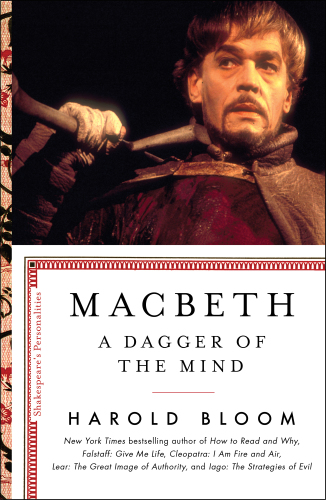
Macbeth
A Dagger of the Mind
کتاب های مرتبط
- اطلاعات
- نقد و بررسی
- دیدگاه کاربران
نقد و بررسی

Bloom (Yale Univ.; The Anxiety of Influence; The Western Canon) has had a long and distinguished career as teacher and scholar. Nearing 88, he continues his prodigious publishing output with this fifth volume in his new series, "Shakespeare Personalities"; previous entries have dealt with William Shakespeare's Falstaff, Cleopatra, King Lear, and Iago. Although the titles suggest a focus on one character, these volumes amount to an annotated text of the play(s) in which the character appears. Throughout, Bloom offers a running commentary, ranging from a single sentence to over a page in length, including theatrical reminiscences, plot summary, paraphrase, historical background, personal reaction, and explication that spans from the insightful to the questionable, as when he says Lady Macbeth has poisoned (rather than drugged) the wine of Duncan's grooms, or glosses "roast your goose" as having sex with a prostitute (rather than "heat your smoothing iron"). Bloom offers no thesis and presents no extended argument about Macbeth, though through his reflections on various passages an idea of the characters emerges. He notes, for example, Macbeth's anticipating "feeling all actions before they are formulated." VERDICT This book is like a curate's egg, with some good places. For larger collections and Shakespeare completists.--Joseph Rosenblum, Univ. of North Carolina, Greensboro
Copyright 1 Library Journal, LLC Used with permission.
February 1, 2019
The venerable and prolific literary scholar completes his Shakespeare's Personalities series with a lingering and deeply curious, even troubled, look at the titular character in the legendary play.Having previously presented brief volumes on Iago, Lear, Cleopatra, and Falstaff, Bloom (Humanities/Yale Univ.) walks us through Macbeth, quoting lengthy passages from the text to illuminate his points. Throughout, the author muses on Macbeth's "proleptic and prophetic imagination" and wonders--all the way to the final paragraph--what it is about this sanguinary, murderous character that so deeply appeals to audiences. For example, Bloom lingers on the grim and grotesque Macbeth-ordered murder of Macduff's wife, son, servants. Although Bloom condemns these events (more than once and unequivocally: "his greatest iniquity"), he also notes that, somehow, we still feel something of a loss when Macduff, later, carries Macbeth's severed head onto the stage for us to see. Although Bloom's interpretations are invariably sound and based on a lifetime of reading and teaching the play, there are times when he ventures near the border of the plausible. He suggests, for example, that it's possible the Macbeths have no children because Macbeth suffers from premature ejaculations. The author also devotes attention to Lady Macbeth, at one point calling her a "fierce virago" who "touches her limit at parricide." Bloom ends with some tributes to the power of Shakespeare's language and imagination. "Shakespeare's bounty, like his Juliet's, is as boundless as the sea. The more you take, the more he has, for his invention and his love for his characters are alike infinite....For all his negativity, Macbeth's vitality survives in our hearts....absorbing him heightens of sense of being."Older readers may wish this clear, concise, empathetic volume were available when they were in school.
COPYRIGHT(2019) Kirkus Reviews, ALL RIGHTS RESERVED.

























دیدگاه کاربران